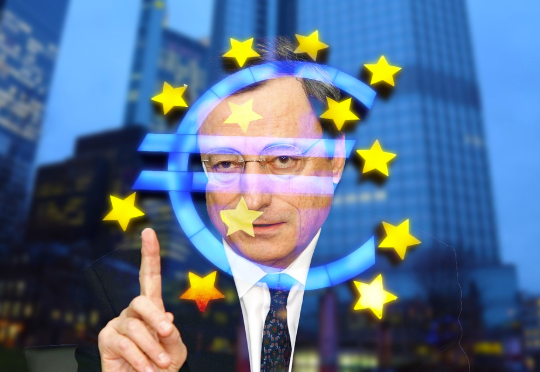No summer hours here. Investors are bracing for a busy week as earnings season gets under way in America, in Europe parliament votes for a new president for the European Commission and on both sides of the Atlantic, investors face a deluge of economic data. Here’s what to watch in the coming days. US earnings Banks unofficially kick off second-quarter earnings season on Monday and investors will be tuning in to see whether corporate America is headed for its first earnings recession since 2016. Citigroup starts the earnings party on Monday and JPMorgan Chase, Goldman Sachs and Wells Fargo follow suit on Tuesday. Prospects of rate cuts by the Federal Reserve are unnerving investors that are watching to see if this could squeeze banks’ profit margins. My colleague Rob Armstrong has more in his excellent bank earnings curtain raiser. I
in all, nearly 60 companies in the S&P 500 are expected to report results including the big banks, Netflix, Microsoft, Schlumberger and Johnson & Johnson. US data Markets have largely pencilled in a cut by the Fed at its monetary policy meeting this month, though investors continue to debate how many cuts the central bank may push through this year and how deep the cuts will be. To get a better picture of the US economy and clues to Fed policymakers’ thinking, investors will closely parse a string of economic data for updates on consumer and industrial health. Americans are expected to have tightened their purse strings a little last month with headline retail sales expected to rise 0.2 per cent month-on-month, following a stronger 0.5 per cent increase in May. Control sales, which strip out volatile items like food, energy and building materials, are expected to rise 0.3 per cent. Investors will also tune into consumer sentiment data later in the week. Updates on the industrial sector come via regional manufacturing surveys as well as industrial production data, which is expected to show factory output cooled. The economic calendar also includes updates on the housing market. UK data
The economic calendar across the pond also promises to be busy with jobs data, inflation and retail sales on the docket. As markets consider the possibility of a rate cut by the Bank of England, “next week’s raft of UK data are likely to give ammunition to both sides of the argument,” noted economists at ING. While wages are expected to tick back up, they said “the high street isn’t feeling the benefit of this modest improvement in real wage growth”. However, they added: “With Brexit noise only likely to increase over the coming months, and a risk that trade tensions could worsen, we think the Bank of England will keep rates on hold for the rest of the year.”
EU Commission president On Tuesday the European Parliament votes on the next EU Commission president. Ursula von der Leyen has promised parliament a bigger say in Brussels’ decision-making as she seeks MEPs for the top post in Brussels for the next five years. “A successful vote will be largely ignored by markets, but a failure to garner enough support (which is still a possibility) could blow up the entire deal that the Council reached earlier this month, though we do think that Ms [Christine] Lagarde’s ECB nomination will be safe either way,” said strategists at TD Securities. South Africa rates On Thursday attention shifts to South Africa, where the reserve bank is widely expected to announce a 25 basis point cut to the repo rate, putting it at 6.5 per cent. Since the last SARB meeting in May, the monetary policy committee has undergone a massive transition. Strategists at TD Securities “think the message will be moderately dovish, suggesting potentially more easing,” and expect “slightly positive” reaction in the rand as they argue markets have “priced for more easing than we expect”.

 Secret message?
Secret message?